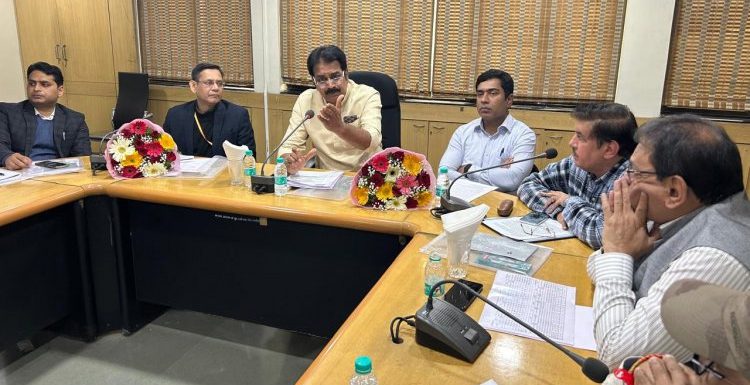Officers and experts in the cooperative sector from across the country gathered in Delhi on Friday for a brainstorming session to determine steps to further boost ethanol production. The meeting was chaired by Harshvardhan Patil, President of the National Federation of Cooperative Sugar Factories (NFCSF).
Attendees included Managing Directors of cooperative sugar factories nationwide, Managing Directors of State Sugar Federations, the Managing Director of NFCSF, the Director of the Union Ministry of Cooperation, D.K. Verma, the Director of NCDC, Girraj Agnihotri, the Sugar Commissioner of Maharashtra, Dr. Kunal Khemnar, and other NFCSF officials.
Amit Shah, Union Minister of Cooperation, had earlier suggested that cooperative sugar mills should actively participate in the 20% ethanol blending program throughout the year to make the cooperative sugar industry economically self-reliant. He emphasized that this could be achieved by producing ethanol from maize during the off-season for sugar production. Following his directive, the NFCSF was tasked with consulting Cooperative Sugar Mills (CSMs) and submitting their recommendations to the Union government. Acting in mission mode, the NFCSF fulfilled this task and submitted its demands.
Due to the NFCSF’s efforts and the Ministry of Cooperation’s support, financial assistance has been secured for cooperative sugar mills in the form of interest subvention on term loans, read a release sent by the co-op body. Additionally, the National Cooperative Development Corporation (NCDC) has agreed to finance these projects with a debt-equity ratio of 90:10 at significantly lower interest rates, it added.
This initiative has become a flagship program under the Union government. In Friday’s meeting, participants discussed strategies to upgrade existing distilleries into multi-feed distilleries. This upgrade will allow the use of food grains, particularly maize, as an additional feedstock, facilitating year-round operations and improving financial sustainability.
India has over 200 cooperative sugar factories, 63 of which have distilleries producing fuel-grade ethanol. However, cooperative mills contribute only about 13% of the total ethanol supply, significantly lower than private sugar mills, primarily due to insufficient availability of cane-based raw materials.
The crushing season for cooperative sugar factories typically ends by March or April. For ethanol production to continue beyond this period, alternative feedstocks like grains must be utilized. Producing ethanol year-round could significantly enhance the financial viability of these factories. Maize, in particular, is a low-water-consuming crop that can be grown in two seasons annually. With an increased minimum support price (MSP) for maize this year, converting existing distilleries into multi-feed facilities could accelerate ethanol production.
Oil marketing companies are prepared to enter long-term agreements with sugar factories for ethanol procurement. Orders have already been issued to prioritize purchasing ethanol from cooperative distilleries.
The Delhi-based National Federation of Cooperative Sugar Factories, along with the Union Ministries of Cooperation, Food, and Petroleum, is working collaboratively in mission mode to implement this program.













































